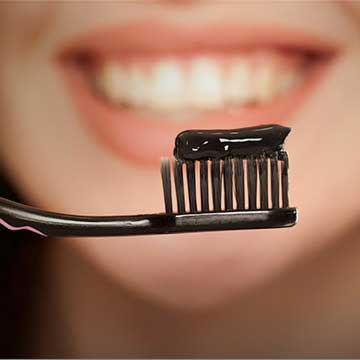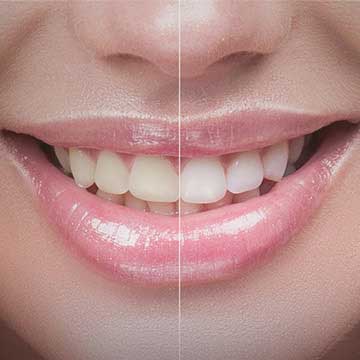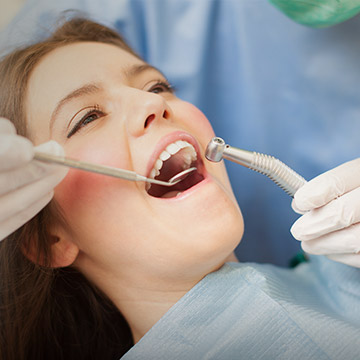Healthy Gums are:
- Firm
- Pink in colour (not red)
- Free from inflammation
- Resistant from bleeding during brushing or flossing
Gum Disease (Periodontal Disease)
Periodontal diseases are mainly the result of infections and inflammation of the gums and bone that surround and support the teeth. They are often silent, which means symptoms may not appear until the advanced stages. There are two kinds of gum disease: gingivitis and periodontitis.
Gingivitis (Early Gum Disease): The mildest form of periodontal disease. This is caused by plaque, tartar (calculus), and bacteria build up on teeth. Symptoms of gingivitis include:
- Red, swollen, or tender gums
- Bleeding while brushing, or flossing
Gingivitis is reversible with improved oral hygiene, such as brushing twice a day, and interdental cleaning daily (ie. traditional floss, waterpik, and/or interdental brushes).
Periodontitis (Irreversible Gum Disease): If left untreated, gingivitis can progress into periodontitis. This is a chronic, inflammatory condition that affects the bones and gums that support teeth. It can lead to weakened gums, bone loss, and ultimately tooth loss.
Early periodontal disease
In the early stages of periodontitis, your gums recede, or pull away, from your teeth and small pockets form between gums and teeth. The pockets harbour harmful bacteria. Your immune system tries to fight the infection, and your gum tissue starts to recede. You’ll likely experience bleeding during brushing and flossing as well, and possibly some bone loss.
Moderate periodontal disease
If left to progress to moderate periodontal disease, you might experience bleeding and pain around the teeth and gum recession. Your teeth will begin to lose bone support and become loose. The infection can also lead to an inflammatory response throughout your body.
Advanced periodontal disease
In advanced disease, the connective tissue that holds your teeth in place begins to deteriorate. The gums, bones, and other tissue that support your teeth are destroyed. If you have advanced periodontitis, you might experience severe pain while chewing, severe bad breath, and a foul taste in your mouth. Tooth loss is likely.
Risk Factors:
- Smoking
- Diabetes
- Family history
- Inflammatory health conditions
Prevention:
- The best way to prevent periodontitis is to have regular dental cleanings and practise good oral hygiene at home between visits. People who are prone to periodontitis may require more frequent cleanings than people without gum disease.








